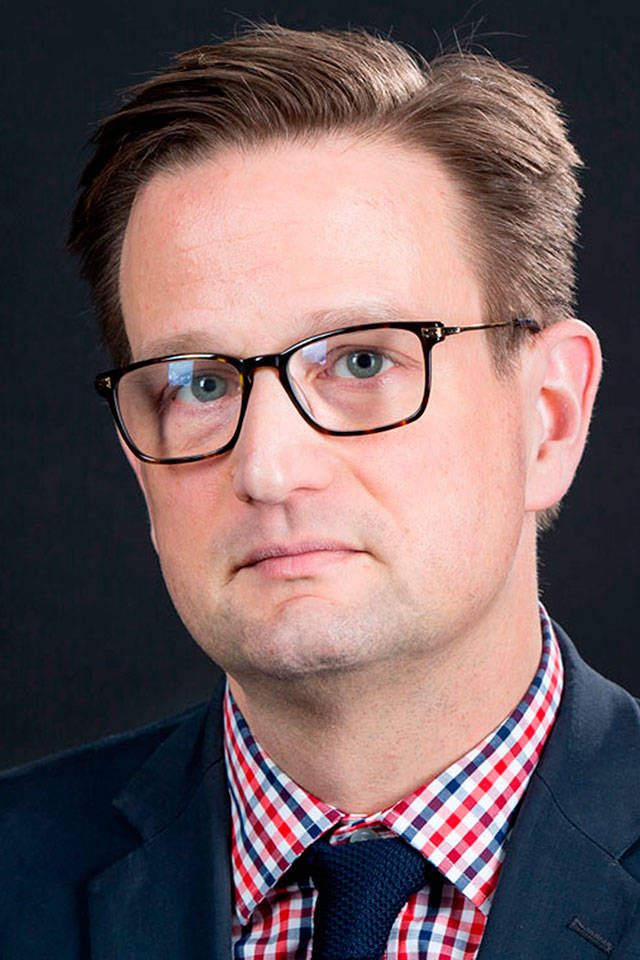What did he think he was signing up for?
In a surreal interview with Reuters at the end of last week, President Donald Trump admitted that he missed driving and conceded that being the Leader of the Free World is much, much harder than he thought it would be.
“I loved my previous life,” he told the wire service. “I had so many things going on. This is more work than in my previous life. I thought it would be easier.”
He added, later: “I do miss my old life. This — I like to work. But this is actually more work.”
Leading a nation of 321.4 million people in a world that is becoming increasingly complex and, in some sectors more dangerous, is, by definition, hard work. And if it’s not, you’re not doing it right.
For evidence, look no further than the before and after photographs of Trump’s predecessors.
Virile and youthful by the start of their four- or eight-year terms of office, the cares and worries and burdens of the job are fairly etched into their faces by the time they leave.
Every president faces a steep learning curve upon taking office. But, unlike Trump, every president since Dwight Eisenhower has come to the table with substantial political and governing experience.
Beyond watching presidents on TV, presumably on Fox News, Trump did not possess such a breadth of experience.
During last year’s presidential campaign, the Republican was content to skate along the surface of policy, offering bromides and slogans and vicious attacks — rather than the mundane specifics of policy to cheering throngs who filled his rallies in basketball arenas across the country.
And like some superannuated high school football player still yearning for the glory days of the gridiron, Trump continues to seize upon any excuse to relive the caffeinated days of the campaign.
Indeed, during his interview with Reuters, Trump “paused to hand out copies of what he said were the latest figures from the 2016 electoral map,” Reuters reported.
“Here, you can take that, that’s the final map of the numbers,” Trump said. “It’s pretty good, right? The red is obviously us.”
But with Trump’s first 100 days in the rearview mirror, this White House is understandably sensitive about the fact that it is woefully short of legislative accomplishments when compared to its predecessors.
Trump’s promised border wall has been put off for the time being. A push to repeal and replace the Affordable Care Act is in disarray amid opposition from Democrats and moderate Republicans.
Trump’s two travel bans have been stayed by federal courts. And efforts to deny federal funding to so-called “sanctuary cities” have also suffered a bad case of judicial whiplash.
Writing in The Washington Post, former George W. Bush administration speechwriter Michael Gerson noted that Trump’s only decisive win, the elevation of Judge Neil Gorsuch to the U.S. Supreme Court only invited unfavorable comparisons.
“Trump’s one unquestioned achievement consists of appointing another man who actually has thoughtful convictions,” Gerson wrote.
And that’s from the home team.
So perhaps it’s not surprising that Trump, who once prowled Manhattan by limousine, winning adulation from restaurant crowds and reality television buffs alike, might be pining for his not-so-long-ago good old days.
“And, while I had very little privacy, in my old life because, you know, I’ve been famous for a long time. I really — this is much less privacy than I’ve seen before. This is, you know, something that’s really amazing. At the same time, you’re really into your own cocoon because there’s such massive protection, that you really can’t go anywhere,” he commented to Reuters of the 24-hour Secret Service monitoring of his every move.
Trump’s interview comes on the heels of a sit down with the Associated Press, where he seemed surprised to discover that his actions have consequences on the lives of every day Americans.
“You have to love people. And if you love people, such a big responsibility,” he said, in part.
In that same interview, Trump complained that he thought his decisive win over Hillary Clinton last fall would result in more favorable coverage, instead of the intense scrutiny that comes with holding the highest elected office in the land.
“I used to get great press. I get the worst press. I get such dishonest reporting with the media,” he lamented to the AP. “That’s another thing that really has — I’ve never had anything like it before. It happened during the primaries, and I said, you know, when I won, I said, “Well the one thing good is now I’ll get good press.” And it got worse. (unintelligible) So that was one thing that a little bit of a surprise to me. I thought the press would become better, and it actually, in my opinion, got more nasty.”
What, exactly, did he think he was signing up for?
An award-winning political journalist, Micek is the Opinion Editor and Political Columnist for PennLive/The Patriot-News in Harrisburg, Pa. Readers may follow him on Twitter @ByJohnLMicek and email him at jmicek@pennlive.com.



